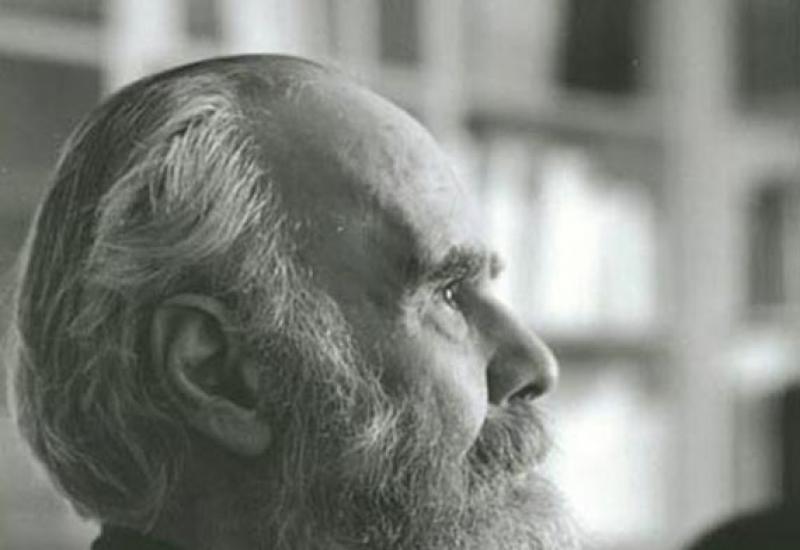The Holy Fathers about God's providence and cutting off one's own will. The teachings of the Optina elders Kaya fulfill the will of God Orthodox
First, what is it: to act according to the will of God. Of course, for a believer this is very important. But what does it mean?
I would like to act according to the will of God, but I can’t help but condemn my neighbor, this is a real fiend of hell, although I know that this is a sin... Or I understand that I need not to deceive, but I can’t - my business will fail. So, I often know God’s will, but I act contrary to it.
And so in words, so in deeds, and I won’t even talk about thoughts, what’s going on in our poor little head? It turns out that we know a lot, but we act exactly contrary to the will of God.
But how can one find out the will of God when one is completely at a loss as to what to do?
The principle answer has long been known. If, when we know it, we lived according to it, then our inner vision would be cleared, and we would gradually be able to see further and act on it. But we, constantly living contrary to the obvious will of God, which says: do not be evil, do not lie, do not envy, do not do evil to your neighbor, etc., when we find ourselves in a difficult situation for us, we want to know the will of God here. However, there is a great law discovered by experience: “He who is unfaithful in a little will be unfaithful in much.” Christ said this. We are constantly, at every step, not faithful either to God or to people. This is the first place where our ignorance of the will of God stems.
The second thing I would like to say: God’s will is that we act according to that reason, albeit stupid, which in this case says that this is the right thing to do. The same is required from our conscience, although half burned, so that it also says: yes, this will be right. Now, when reason and conscience agree, then this is what you should do. Because the will of God is that we act honestly and sincerely. And in this case, even if our stupid mind made a mistake and chose the wrong path, God will correct it. Conscience and reason are the two lines that, at their intersection, provide the desired point of action that is correct according to the will of God.
And one last thing. It is wrong to think that when we encounter some obstacles in our decision, therefore, there is no will of God here. The general rule of the Fathers says: every good deed is either preceded or followed by temptation, so that we are not proud of having done something that seems good. However, it is completely different that we must judge with our minds before making a decision. And here we find the advice of one of the great saints of the 6th century, Barsanuphius the Great, who said this: “Try to know the will of God from external circumstances.” That is, when we hit a wall, then we need to stop.
You can't go through the wall. And when the mind is already against it, therefore, most likely, there is no will of God. But it would also be nice to hear the voice of conscience.
“Is it God’s will for me to marry this man?” “What about going to work in a specific organization in order to enter such and such an institute?” “Is God’s will for some event in my life and for some action of mine?” We ask ourselves questions like these all the time. How can we understand whether we act in life according to the will of God or on our own? And in general, do we understand the will of God correctly? Answered by Archpriest Alexy Uminsky, rector of the Church of the Holy Trinity in Khokhly.
–How can God's will be manifested in our lives?
– I think it can manifest itself through the circumstances of life, the movement of our conscience, the reflections of the human mind, through comparisons with the commandments of God, through, first of all, a person’s very desire to live according to the will of God.
More often than not, the desire to know God’s will arises spontaneously: five minutes ago we didn’t need it, and suddenly boom, we urgently need to understand God’s will. And most often in everyday situations that do not concern the main thing.
Here some life circumstances become the main thing: to get married or not to get married, to go left, right or straight, what will you lose - a horse, a head or something else, or vice versa will you gain? The person begins, as if blindfolded, to poke in different directions.
I think that knowing the will of God is one of the main tasks of human life, an urgent task every day. This is one of the main requests of the Lord’s Prayer, to which people do not pay enough attention.
– Yes, we say: “Thy will be done” at least five times a day. But we ourselves internally want “everything to be fine” according to our own ideas...
– Vladyka Anthony of Sourozh very often said that when we say “Thy will be done,” we actually really want our will to be, but so that at that moment it coincides with the will of God, is sanctioned, approved by Him. At its core, this is a crafty idea.
The will of God is neither a secret, nor a secret, nor some kind of code that needs to be deciphered; to know it, you don’t have to go to the elders, you don’t have to specifically ask someone else about it.
The Monk Abba Dorotheos writes about it this way:
“Another may think: if someone does not have a person whom he could question, then what should he do in this case? If someone wants to truly, with all his heart, fulfill the will of God, then God will never leave him, but will instruct him in every possible way according to His will. Truly, if someone directs his heart according to the will of God, then God will enlighten the little child to tell him His will. If someone does not want to sincerely do the will of God, then even though he will go to the prophet, and God will put it on the prophet’s heart to answer him, in accordance with his corrupted heart, as the Scripture says: and if a prophet is deceived and speaks a word, the Lord has deceived that prophet. (Ezek. 14:9).”
Although every person, to one degree or another, suffers from some kind of internal spiritual deafness. Brodsky has this line: “I’m a little deaf. God, I am blind." Developing this inner hearing is one of the main spiritual tasks of a believer.
There are people who are born with an absolute ear for music, but there are those who do not hit the notes. But with constant practice, they can develop their missing ear for music. Even if not to the absolute extent. The same thing happens to a person who wants to know the will of God.
–What spiritual exercises are needed here?
– Yes, no special exercises, you just need a great desire to hear and trust God. This is a serious struggle with oneself, which is called asceticism. Here is the main center of asceticism, when instead of yourself, instead of all your ambitions, you put God at the center.

– How can we understand that a person is really fulfilling the will of God, and is not acting arbitrarily, hiding behind it? So the holy righteous John of Kronstadt boldly prayed for the recovery of those asking and knew that he was fulfilling the will of God. On the other hand, it’s so easy, hiding behind the fact that you act according to the will of God, to do something unknown...
– Of course, the concept of “God’s will” in itself can be used, like everything in human life, simply for some kind of manipulation. It is too easy to arbitrarily attract God to your side, to use the will of God to justify the suffering of someone else, your own mistakes and your own inaction, stupidity, sin, and malice.
We attribute a lot of things to God. God is often on our trial, as the accused. The will of God is unknown to us only because we do not want to know it. We replace it with our fictions and use it to realize some false aspirations.
The real will of God is unobtrusive, very tactful. Unfortunately, anyone can easily use this phrase to their advantage. People manipulate God. It’s easy for us to justify our crimes or sins all the time by saying that God is with us.
We see this happening before our eyes today. How people with the words “God’s Will” on their T-shirts hit their opponents in the face, insult them, and send them to hell. Is it God’s will to beat and insult? But some people believe that they themselves are the will of God. How to dissuade them from this? I don't know.
The will of God, war and commandments
– But still, how not to make a mistake, to recognize the true will of God, and not something arbitrary?
– A huge number of things are most often done according to our own will, according to our desire, because when a person wants his will to be done, it is done. When a person wants God's will to be done and says, “Thy will be done,” and opens the door of his heart to God, then little by little the person's life is taken into God's hands. And when a person does not want this, then God says to him: “thy will be done, please.”
The question arises about our freedom, in which the Lord does not interfere, for the sake of which He limits His absolute freedom.
The Gospel tells us that God's will is the salvation of all people. God came into the world so that no one would perish. Our personal knowledge of the will of God lies in the knowledge of God, which for us also reveals the Gospel: “That they may know You, the only true God” (John 17:3), says Jesus Christ.
These words are heard at the Last Supper, at which the Lord washes the feet of His disciples and appears before them as sacrificial, merciful, saving love. Where the Lord reveals the will of God, showing the disciples and all of us the image of service and love, so that we do the same.
After washing the feet of his disciples, Christ says: “Do you know what I have done to you? You call Me Teacher and Lord, and you speak correctly, for I am exactly that. So, if I, the Lord and Teacher, washed your feet, then you should wash each other’s feet. For I have given you an example, that you also should do the same as I have done to you. Truly, truly, I say to you, a servant is not greater than his master, and a messenger is not greater than the one who sent him. If you know this, blessed are you when you do it” (John 13:12-17).

Thus, God's will for each of us is revealed as a task for each of us to be like Christ, to be involved in Him and co-natural in His love. His will is also in that first commandment - “You shall love the Lord your God with all your heart and with all your soul and with all your mind: this is the first and greatest commandment; the second is similar to it: love your neighbor as yourself” (Matthew 22:37–39).
His will is this too: “...love your enemies, do good to those who hate you, bless those who curse you, and pray for those who mistreat you” (Luke 6:27-28).
And, for example, in this: “Judge not, and you will not be judged; do not condemn, and you will not be condemned; forgive, and you will be forgiven” (Luke 6:37).
The Gospel word and the apostolic word, the word of the New Testament - all this is a manifestation of God's will for each of us. There is no will of God for sin, for insulting another person, for humiliating other people, for people to kill each other, even if their banners say: “God is with us.”
– It turns out that during a war there is a violation of the commandment “Thou shalt not kill.” But, for example, the soldiers of the Great Patriotic War, who defended their Motherland and family, did they really go against the will of the Lord?
– It is obvious that there is God’s will to protect from violence, to protect, among other things, one’s Fatherland from the “finding of foreigners”, from the ruin and enslavement of one’s people. But at the same time, there is no will of God for hatred, for murder, for revenge.
You just need to understand that those who defended their Motherland then had no other choice at the moment. But any war is a tragedy and a sin. There are no just wars.
In Christian times, all soldiers returning from war performed penance. All, despite any seemingly just war, in defense of their homeland. Because it is impossible to keep yourself pure, in love and in union with God when you have a weapon in your hands and, whether you want it or not, you are obliged to kill.
I would also like to note this: when we talk about love for enemies, about the Gospel, when we understand that the Gospel is God’s will for us, then sometimes we really want to justify our dislike and reluctance to live according to the Gospel with some almost patristic sayings.
Well, for example: give a quote taken from John Chrysostom “sanctify your hand with a blow” or the opinion of Metropolitan Philaret of Moscow that: love your enemies, beat the enemies of the Fatherland and abhor the enemies of Christ. It would seem that such a succinct phrase, everything falls into place, I always have the right to choose who is the enemy of Christ among those whom I hate and can easily name: “You are simply an enemy of Christ, and that is why I abhor you; you are an enemy of my Fatherland, that’s why I beat you.”
But here it is enough to simply look at the Gospel and see: who crucified Christ and for whom Christ prayed, asked his Father, “Father forgive them, for they do not know what they are doing” (Luke 23:34)? Were they the enemies of Christ? Yes, these were the enemies of Christ, and He prayed for them. Were these the enemies of the Fatherland, the Romans? Yes, these were enemies of the Fatherland. Were these His personal enemies? Most likely no. Because Christ personally cannot have enemies. A person cannot be an enemy to Christ. There is only one creature that can truly be called an enemy - this is Satan.
And therefore, yes, of course, when your Fatherland was surrounded by enemies and your house was burned, then you must fight for it and you must fight off these enemies, you must overcome them. But the enemy immediately ceases to be an enemy as soon as he lays down his arms.
Let us remember how Russian women, whose loved ones were killed by these same Germans, treated the captured Germans, how they shared a meager piece of bread with them. Why at that moment did they cease to be personal enemies for them, remaining enemies of the Fatherland? The love and forgiveness that the captured Germans saw then, they still remember and describe in their memoirs...
If one of your neighbors suddenly insulted your faith, you probably have the right from this person to cross to the other side of the street. But this does not mean that you are freed from the right to pray for him, to wish for the salvation of his soul and in every possible way to use your own love for the conversion of this person.

Is it God's will for suffering?
– The Apostle Paul says: “In everything give thanks: for this is the will of God in Christ Jesus for you” (1 Thess. 5:18) This means that everything that happens to us is according to His will. Or do we act on our own?
– I think it’s correct to quote the entire quote: “Always rejoice. Pray without ceasing. In everything give thanks: for this is the will of God in Christ Jesus for you” (1 Thess. 5:16-18).
God's will for us is that we live in a state of prayer, joy and thanksgiving. So that our condition, our completeness, lies in these three important actions of the Christian life.
– A person clearly does not want illness or trouble for himself. But all this happens. By whose will?
– Even if a person does not want troubles and illnesses to happen in his life, he cannot always avoid them. But there is no will of God for suffering. There is no will of God on the mountain. There is no will of God for the death and torture of children. It is not the will of God for there to be wars or bombing of Donetsk and Lugansk, for Christians in that terrible conflict, located on opposite sides of the front line, taking communion in Orthodox churches, and then going to kill each other.
God doesn't like our suffering. Therefore, when people say: “God sent the disease,” this is a lie, blasphemy. God does not send diseases.
They exist in the world because the world lies in evil.
–It is difficult for a person to understand all this, especially when he finds himself in trouble...
– We don’t understand many things in life, relying on God. But if we know that “God is love” (1 John 4:8), we should not be afraid. And we don’t just know from books, but we understand through our experience of living according to the Gospel, then we may not understand God, at some point we may not even hear Him, but we can trust Him and not be afraid.
Because if God is love, even something happening to us at the moment seems completely strange and inexplicable, we can understand and trust God, know that with Him there can be no catastrophe.
Let us remember how the apostles, seeing that they were drowning in a boat during a storm, and thinking that Christ was sleeping, were horrified that everything was already over and now they would drown, and no one would save them. Christ said to them: “Why are you so fearful, you of little faith!” (Matthew 8:26) And - stopped the storm.
The same thing that happens to the apostles happens to us. It seems to us that God does not care about us. But in fact, we must follow the path of trust in God to the end, if we know that He is love.

– But still, if we take our everyday life. I would like to understand where His plan for us is, what it is. A person stubbornly applies to a university and is accepted the fifth time. Or maybe I should have stopped and chosen a different profession? Or do childless spouses undergo treatment, spend a lot of effort to become parents, and maybe, according to God’s plan, they don’t need to do this? And sometimes, after years of treatment for childlessness, spouses suddenly give birth to triplets...
– It seems to me that God may have many plans for a person. A person can choose different paths in life, and this does not mean that he violates the will of God or lives according to it. Because the will of God can be for different things for one particular person, and at different periods of his life. And sometimes it is God’s will for a person to go astray and through failure to learn some important things for himself.
The will of God is educational. It is not a test for the Unified State Exam, where you need to fill in the required box with a tick: if you fill it out, you find out, if you don’t fill it out, you made a mistake, and then your whole life is going wrong. Not true. The will of God happens to us constantly, as a kind of movement of us in this life on the path to God, along which we wander, fall, are mistaken, go in the wrong direction, and enter the clear path.
And the whole path of our life is God’s amazing upbringing of us. This does not mean that if I entered somewhere or did not enter, this is God’s will for me forever or the absence thereof. There is no need to be afraid of this, that's all. Because the will of God is a manifestation of God’s love for us, for our lives, this is the path to salvation. And not the path of entering or not entering the institute...
Pravmir has been operating for 15 years thanks to donations from readers. To produce high-quality materials, you need to pay for the work of journalists, photographers, and editors. We cannot do without your help and support.
Please support Pravmir by signing up for a regular donation. 50, 100, 200 rubles - so that Pravmir continues. And we promise not to slow down!
Throughout our lives, we more than once find ourselves faced with a choice of what to do, which path to take, and not just to follow, but to ensure that this path corresponds to God’s will for us. How can we find out the will of God? How do we know that the choice we make is the right one? The pastors of the Russian Church give their advice.
The question of how to find out the will of God is perhaps one of the most important in our lives. Agree that the will of God is the most accurate and true measure of how we should act.
To know or feel the will of God in a particular case, many conditions are needed. This is a good knowledge of the Holy Scriptures, this is slowness in decision, this is the advice of a confessor.
To properly understand Holy Scripture, first, it must be read prayerfully, that is, read not as a text for discussion, but as a text that is understood prayerfully. Secondly, in order to understand the Holy Scriptures, it is necessary, as the apostle says, not to be conformed to this age, but to be transformed by the renewing of your mind (see: Rom. 12:2). In Greek, the verb “not to be conformed” means: not to have a common pattern with this age: that is, when they say: “Everyone thinks like this in our time,” this is a certain pattern, and we should not conform to it. If we want to know the will of God, we must deliberately discard and ignore what one of the 17th century sages, Francis Bacon, called “the idols of the crowd,” that is, the opinions of others.
All Christians without exception are told: “I appeal to you, brethren, by the mercies of God... do not be conformed to this world, but be transformed by the renewing of your mind, so that you may discern what is the good, acceptable and perfect will of God” (Rom. 12:1-2 ); “Do not be foolish, but understand what is the will of God” (Eph. 5:17). And in general, the will of God can only be known through personal communication with Him. Therefore, a close relationship with Him and serving Him will be a necessary condition for finding an answer to our question.
Live in accordance with God's commandments
How to find out the will of God? Yes, it’s very simple: you need to open the New Testament, the First Epistle of the Apostle Paul to the Thessalonians, and read: “This is the will of God, your sanctification” (1 Thess. 4:3). And we are sanctified by obedience to God.
So there is only one sure way to know the will of God - this is to live in harmony with the Lord. And the more we establish ourselves in such a life, the more we seem to take root, establish ourselves in God’s likeness, and acquire real skill in understanding and fulfilling the will of God, that is, in the conscious and consistent fulfillment of His commandments. This is general, and the particular follows from this general. Because if a person in some specific life situation wants to know God’s will about himself and, let’s say, learns it from some spirit-bearing elder, but the disposition of the person himself is not spiritual, then he will not be able to understand, accept, or fulfill this will... So the main thing is, without a doubt, a sober, spiritual life and attentive fulfillment of God’s commandments.
And if a person is going through some important period in his life and he really wants to make the right choice, to act Godly in this or that difficult situation, then based on all that has been said, the first way to find out the will of God is to strengthen his church life, then there is to bear special spiritual labor: to speak, to confess, to receive communion, to show greater than usual zeal in prayer and reading the word of God - this is the main work for someone who really wants to know the will of God in this or that matter. And the Lord, seeing such a sober and serious disposition of the heart, will certainly make His holy will clear and give strength to fulfill it. This is a fact that has been verified many times and by a variety of people. You just need to show constancy, patience and determination in seeking the truth of God, and not in pleasing your dreams, desires and plans... Because everything mentioned is already self-will, that is, not the plans, dreams and hopes themselves, but the desire for everything to be exactly the way we want. Here is a question of real faith and self-denial, if you like, readiness to follow Christ, and not your ideas about what is right and useful. It is impossible without this.
Prayer of Abba Isaiah: “God, show mercy to me and, whatever pleases You about me, inspire my father (name) to say it about me.”
In Rus', it is customary to ask for advice at especially important moments in life from the elders, that is, from experienced confessors endowed with special grace. This desire is deeply rooted in the tradition of Russian church life. Only, when going for advice, we need to remember, again, that spiritual work is required of us: strong prayer, abstinence and repentance with humility, readiness and determination to do the will of God - that is, everything that we talked about above. But in addition, it is also imperative and earnest to pray for the enlightenment of the confessor with the grace of the Holy Spirit, so that the Lord, by His mercy, through the spiritual father, will reveal to us His holy will. There are such prayers, the holy fathers write about them. Here is one of them, proposed by the Venerable Abba Isaiah:
“God, do mercy on me and, whatever pleases You about me, inspire my father (name) to say it about me.”.
Desire God's will, not your own
The will of God can be found out in different ways - through the advice of a confessor or, through reading the word of God or with the help of lots, etc. But the main thing that anyone who wants to know the will of God must have is the willingness to unquestioningly follow it in his life. If there is such a readiness, the Lord will definitely reveal His will to a person, perhaps in an unexpected way.
You need to internally prepare for any outcome, not get attached to any of the options for the development of events.
I like the patristic advice. As a rule, we long to know the will of God at the moment when we stand at a crossroads - before a choice. Or when we prefer one option for the development of events over another, less attractive to us. Firstly, you need to try to set yourself up equally in relation to any path or development of events, that is, internally prepare for any outcome, and not become attached to any of the options. Secondly, sincerely and fervently pray that the Lord will arrange everything according to His good will and do everything in a way that will be useful for us in terms of our salvation in eternity. And then, as the holy fathers claim, His Providence for us will be revealed.
Be attentive to yourself and your conscience
Be careful! To yourself, to the world around you and your neighbors. The will of God is open to a Christian in the Holy Scriptures: a person can receive an answer to his questions in it. According to St. Augustine, when we pray, we turn to God, and when we read the Holy Scriptures, the Lord answers us. The will of God is for everyone to come to salvation. Knowing this, strive to direct your will in all events of life towards God who saves.
And “in everything give thanks: for this is the will of God in Christ Jesus for you” (1 Thess. 5:18).
It is quite simple to find out the will of God: if the conscience, when tested by prayer and time, does not “revolt”, if the solution to this or that issue does not contradict the Gospel and if the confessor is not against your decision, then God’s will is for that decision. Each of your actions must be viewed through the prism of the Gospel and accompanied by a prayer, even the shortest one: “Lord, bless.”
Throughout our lives, we more than once find ourselves faced with a choice of what to do, which path to take, and not just to follow, but to ensure that this path corresponds to God’s will for us. How can we find out the will of God? How do we know that the choice we make is the right one? The pastors of the Russian Church give their advice.
– The question of how to find out the will of God is perhaps one of the most important in our lives. Agree that the will of God is the most accurate and true measure of how we should act.
To know or feel the will of God in a particular case, many conditions are needed. This is a good knowledge of the Holy Scriptures, this is slowness in decision, this is the advice of a confessor.
To properly understand Holy Scripture, first, it must be read prayerfully, that is, read not as a text for discussion, but as a text that is understood prayerfully. Secondly, in order to understand the Holy Scriptures, it is necessary, as the apostle says, not to be conformed to this age, but to be transformed by the renewing of your mind (see: Rom. 12:2). In Greek, the verb “not to be conformed” means: not to have a common pattern with this age: that is, when they say: “Everyone thinks like this in our time,” this is a certain pattern, and we should not conform to it. If we want to know the will of God, we must deliberately discard and ignore what one of the 17th century sages, Francis Bacon, called “the idols of the crowd,” that is, the opinions of others.
All Christians without exception are told: “I appeal to you, brethren, by the mercies of God... do not be conformed to this world, but be transformed by the renewing of your mind, so that you may discern what is the good, acceptable and perfect will of God” (Rom. 12:1-2 ); “Do not be foolish, but understand what is the will of God” (Eph. 5:17). And in general, the will of God can only be known through personal communication with Him. Therefore, a close relationship with Him, prayer and service to Him will be a necessary condition for finding the answer to our question.
Live in accordance with God's commandments
– How to find out the will of God? Yes, it’s very simple: you need to open the New Testament, the First Epistle of the Apostle Paul to the Thessalonians, and read: “This is the will of God, your sanctification” (1 Thess. 4:3). And we are sanctified by obedience to God.
So there is only one sure way to know the will of God - this is to live in harmony with the Lord. And the more we establish ourselves in such a life, the more we seem to take root, establish ourselves in God’s likeness, and acquire real skill in understanding and fulfilling the will of God, that is, in the conscious and consistent fulfillment of His commandments. This is general, and the particular follows from this general. Because if a person in some specific life situation wants to know God’s will about himself and, let’s say, learns it from some spirit-bearing elder, but the disposition of the person himself is not spiritual, then he will not be able to understand, accept, or fulfill this will... So the main thing is, without a doubt, a sober, spiritual life and attentive fulfillment of God’s commandments.
And if a person is going through some important period in his life and he really wants to make the right choice, to act Godly in this or that difficult situation, then based on all that has been said, the first way to find out the will of God is to strengthen his church life, then there is to bear special spiritual labor: to speak, to confess, to receive communion, to show greater than usual zeal in prayer and reading the word of God - this is the main work for someone who really wants to know the will of God in this or that matter. And the Lord, seeing such a sober and serious disposition of the heart, will certainly make His holy will clear and give strength to fulfill it. This is a fact that has been verified many times and by a variety of people. You just need to show constancy, patience and determination in seeking the truth of God, and not in pleasing your dreams, desires and plans... Because everything mentioned is already self-will, that is, not the plans, dreams and hopes themselves, but the desire for everything to be exactly the way we want. Here is a question of real faith and self-denial, if you like, readiness to follow Christ, and not your ideas about what is right and useful. It is impossible without this.
In Rus', it is customary to ask for advice at especially important moments in life from the elders, that is, from experienced confessors endowed with special grace. This desire is deeply rooted in the tradition of Russian church life. Only, when going for advice, we need to remember, again, that spiritual work is required of us: strong prayer, abstinence and repentance with humility, readiness and determination to do the will of God - that is, everything that we talked about above. But in addition, it is also imperative and earnest to pray for the enlightenment of the confessor with the grace of the Holy Spirit, so that the Lord, by His mercy, through the spiritual father, will reveal to us His holy will. There are such prayers, the holy fathers write about them. Here is one of them, proposed by the Venerable Abba Isaiah:
“God, do mercy on me and, whatever pleases You about me, inspire my father (name) to say it about me.”
Desire God's will, not your own
- The will of God can be found out in different ways - through the advice of a confessor or the blessing of parents, through reading the word of God or with the help of lots, etc. But the main thing that anyone who wants to know the will of God must have is the willingness to unquestioningly follow it in his life. If there is such a readiness, the Lord will definitely reveal His will to a person, perhaps in an unexpected way.
– I like the patristic advice. As a rule, we long to know the will of God at the moment when we stand at a crossroads - before a choice. Or when we prefer one option for the development of events over another, less attractive to us. Firstly, you need to try to set yourself up equally in relation to any path or development of events, that is, internally prepare for any outcome, and not become attached to any of the options. Secondly, sincerely and fervently pray that the Lord will arrange everything according to His good will and do everything in a way that will be useful for us in terms of our salvation in eternity. And then, as the holy fathers claim, His Providence for us will be revealed.
Be attentive to yourself and your conscience
- Be careful! To yourself, to the world around you and your neighbors. The will of God is open to a Christian in the Holy Scriptures: a person can receive an answer to his questions in it. According to St. Augustine, when we pray, we turn to God, and when we read the Holy Scriptures, the Lord answers us. The will of God is for everyone to come to salvation. Knowing this, strive to direct your will in all events of life towards God who saves.
And “in everything give thanks: for this is the will of God in Christ Jesus for you” (1 Thess. 5:18).
– It is quite simple to find out the will of God: if the conscience, when tested by prayer and time, does not “revolt”, if the solution to this or that issue does not contradict the Gospel and if the confessor is not against your decision, then God’s will is the decision. Each of your actions must be viewed through the prism of the Gospel and accompanied by a prayer, even the shortest one: “Lord, bless.”
I think it can manifest itself through the circumstances of life, the movement of our conscience, the reflections of the human mind, through comparisons with the commandments of God, through, first of all, a person’s very desire to live according to the will of God.
More often than not, the desire to know God’s will arises spontaneously: five minutes ago we didn’t need it, and suddenly boom, we urgently need to understand God’s will. And most often in everyday situations that do not concern the main thing.
Here, some life circumstances become the main thing: to get married or not to get married, to go left, right or straight, what will you lose - a horse, a head or something else, or vice versa will you gain? The person begins, as if blindfolded, to poke in different directions.
I think that knowing the will of God is one of the main tasks of human life, an urgent task every day. This is one of the main requests of the Lord’s Prayer, to which people do not pay enough attention.
Yes, we say “Thy will be done” at least five times a day. But we ourselves internally want “everything to be fine” according to our own ideas...
Vladyka Anthony of Sourozh very often said that when we say “Thy will be done,” we actually really want our will to be, but so that at that moment it coincides with the will of God, is sanctioned, approved by Him. At its core, this is a crafty idea.
The will of God is neither a secret, nor a secret, nor some kind of code that needs to be deciphered; to know it, you don’t have to go to the elders, you don’t have to specifically ask someone else about it.
The Monk Abba Dorotheos writes about it this way:
“Another may think: if someone does not have a person whom he could question, then what should he do in this case? If someone wants to truly, with all his heart, fulfill the will of God, then God will never leave him, but will instruct him in every possible way according to His will. Truly, if someone directs his heart according to the will of God, then God will enlighten the little child to tell him His will. If someone does not want to sincerely do the will of God, then even though he will go to the prophet, and God will put it on the prophet’s heart to answer him, in accordance with his corrupted heart, as the Scripture says: and if a prophet is deceived and speaks a word, the Lord has deceived that prophet. (Ezek. 14:9).”
Although every person, to one degree or another, suffers from some kind of internal spiritual deafness. Brodsky has this line: “I’m a little deaf. God, I am blind." Developing this inner hearing is one of the main spiritual tasks of a believer.
There are people who are born with an absolute ear for music, but there are those who do not hit the notes. But with constant practice, they can develop their missing ear for music. Even if not to the absolute extent. The same thing happens to a person who wants to know the will of God.
-
What spiritual exercises are needed here?
Yes, no special exercises, you just need a great desire to hear and trust God. This is a serious struggle with oneself, which is called asceticism. Here is the main center of asceticism, when instead of yourself, instead of all your ambitions, you put God at the center.
- How can we understand that a person is really fulfilling the will of God, and is not acting arbitrarily, hiding behind it? So the holy righteous John of Kronstadt boldly prayed for the recovery of those asking and knew that he was fulfilling the will of God. On the other hand, it’s so easy, hiding behind the fact that you act according to the will of God, to do something unknown...
Of course, the concept of “God’s will” in itself can be used, like everything in human life, simply for some kind of manipulation. It is too easy to arbitrarily attract God to your side, to use the will of God to justify the suffering of someone else, your own mistakes and your own inaction, stupidity, sin, and malice.
We attribute a lot of things to God. God is often on our trial, as the accused. The will of God is unknown to us only because we do not want to know it. We replace it with our fictions and use it to realize some false aspirations.
The real will of God is unobtrusive, very tactful. Unfortunately, anyone can easily use this phrase to their advantage. People manipulate God. It’s easy for us to justify our crimes or sins all the time by saying that God is with us.
We see this happening before our eyes today. How people with the words “God’s Will” on their T-shirts hit their opponents in the face, insult them, and send them to hell. Is it God’s will to beat and insult? But some people believe that they themselves are the will of God. How to dissuade them from this? I don't know.
The will of God, war and commandments
- But still, how not to make a mistake, to recognize the true will of God, and not something arbitrary?
A huge number of things are most often done according to our own will, according to our desire, because when a person wants his will to be, it is done. When a person wants God's will to be done and says, “Thy will be done,” and opens the door of his heart to God, then little by little the person's life is taken into God's hands. And when a person does not want this, then God says to him: “thy will be done, please.”
The question arises about our freedom, in which the Lord does not interfere, for the sake of which He limits His absolute freedom.
The Gospel tells us that God's will is the salvation of all people. God came into the world so that no one would perish. Our personal knowledge of the will of God lies in the knowledge of God, which for us also reveals the Gospel: “That they may know You, the only true God” (John 17:3), says Jesus Christ.
These words are heard at the Last Supper, at which the Lord washes the feet of His disciples and appears before them as sacrificial, merciful, saving love. Where the Lord reveals the will of God, showing the disciples and all of us the image of service and love, so that we do the same.
After washing the feet of his disciples, Christ says: “Do you know what I have done to you? You call Me Teacher and Lord, and you speak correctly, for I am exactly that. So, if I, the Lord and Teacher, washed your feet, then you should wash each other’s feet. For I have given you an example, that you also should do the same as I have done to you. Truly, truly, I say to you, a servant is not greater than his master, and a messenger is not greater than the one who sent him. If you know this, blessed are you when you do it” (John 13:12-17).
Thus, God's will for each of us is revealed as a task for each of us to be like Christ, to be involved in Him and co-natural in His love. His will is also in that first commandment - “You shall love the Lord your God with all your heart and with all your soul and with all your mind: this is the first and greatest commandment; the second is similar to it: love your neighbor as yourself” (Matthew 22:37-39).
His will is this too: “...love your enemies, do good to those who hate you, bless those who curse you, and pray for those who mistreat you” (Luke 6:27-28).
And, for example, in this: “Judge not, and you will not be judged; do not condemn, and you will not be condemned; forgive, and you will be forgiven” (Luke 6:37).
The Gospel word and the apostolic word, the word of the New Testament - all this is a manifestation of God's will for each of us. There is no will of God for sin, for insulting another person, for humiliating other people, for people to kill each other, even if their banners say: “God is with us.”
- It turns out that during a war there is a violation of the commandment “Thou shalt not kill.” But, for example, the soldiers of the Great Patriotic War, who defended their Motherland and family, did they really go against the will of the Lord?
It is obvious that there is God’s will to protect from violence, to protect, among other things, one’s Fatherland from “the presence of foreigners,” from the ruin and enslavement of one’s people. But at the same time, there is no will of God for hatred, for murder, for revenge.
You just need to understand that those who defended their Motherland then had no other choice at the moment. But any war is a tragedy and a sin. There are no just wars.
In Christian times, all soldiers returning from war performed penance. All, despite any seemingly just war, in defense of their homeland. Because it is impossible to keep yourself pure, in love and in union with God when you have a weapon in your hands and, whether you want it or not, you are obliged to kill.
I would also like to note this: when we talk about love for enemies, about the Gospel, when we understand that the Gospel is God’s will for us, then sometimes we really want to justify our dislike and reluctance to live according to the Gospel with some almost patristic sayings.
Well, for example: give a quote taken from John Chrysostom “sanctify your hand with a blow” or the opinion of Metropolitan Philaret of Moscow that: love your enemies, beat the enemies of the Fatherland and abhor the enemies of Christ. It would seem that such a succinct phrase, everything falls into place, I always have the right to choose who is the enemy of Christ among those whom I hate and can easily name: “You are simply an enemy of Christ, and that is why I abhor you; you are an enemy of my Fatherland, that’s why I beat you.”
But here it is enough to simply look at the Gospel and see: who crucified Christ and for whom Christ prayed, asked his Father, “Father forgive them, for they do not know what they are doing” (Luke 23:34)? Were they the enemies of Christ? Yes, these were the enemies of Christ, and He prayed for them. Were these the enemies of the Fatherland, the Romans? Yes, these were enemies of the Fatherland. Were these His personal enemies? Most likely no. Because Christ personally cannot have enemies. A person cannot be an enemy to Christ. There is only one creature that can truly be called an enemy - this is Satan.
And therefore, yes, of course, when your Fatherland was surrounded by enemies and your house was burned, then you must fight for it and you must fight off these enemies, you must overcome them. But the enemy immediately ceases to be an enemy as soon as he lays down his arms.
Let us remember how Russian women, whose loved ones were killed by these same Germans, treated the captured Germans, how they shared a meager piece of bread with them. Why at that moment did they cease to be personal enemies for them, remaining enemies of the Fatherland? The love and forgiveness that the captured Germans saw then, they still remember and describe in their memoirs...
If one of your neighbors suddenly insulted your faith, you probably have the right from this person to cross to the other side of the street. But this does not mean that you are freed from the right to pray for him, to wish for the salvation of his soul and in every possible way to use your own love for the conversion of this person.
Is it God's will for suffering?
The Apostle Paul says: “In everything give thanks: for this is the will of God in Christ Jesus for you” (1 Thess. 5:18) This means that everything that happens to us is according to His will. Or do we act on our own?
I think it is correct to quote the entire quote: “Always rejoice. Pray without ceasing. In everything give thanks: for this is the will of God in Christ Jesus for you” (1 Thess. 5:16-18).
God's will for us is that we live in a state of prayer, joy and thanksgiving. So that our condition, our completeness, lies in these three important actions of the Christian life.
-
A person clearly does not want illness or trouble for himself. But all this happens. By whose will?
Even if a person does not want troubles and illnesses to happen in his life, he cannot always avoid them. But there is no will of God for suffering. There is no will of God on the mountain. There is no will of God for the death and torture of children. It is not the will of God for there to be wars or bombing of Donetsk and Lugansk, for Christians in that terrible conflict, located on opposite sides of the front line, taking communion in Orthodox churches, and then going to kill each other.
God doesn't like our suffering. Therefore, when people say: “God sent the disease,” this is a lie, blasphemy. God does not send diseases.
They exist in the world because the world lies in evil.
-
It is difficult for a person to understand all this, especially when he finds himself in trouble...
We do not understand many things in life, relying on God. But if we know that “God is love” (1 John 4:8), we should not be afraid. And we don’t just know from books, but we understand through our experience of living according to the Gospel, then we may not understand God, at some point we may not even hear Him, but we can trust Him and not be afraid.
Because if God is love, even something happening to us at the moment seems completely strange and inexplicable, we can understand and trust God, know that with Him there can be no catastrophe.
Let us remember how the apostles, seeing that they were drowning in a boat during a storm, and thinking that Christ was sleeping, were horrified that everything was already over and now they would drown, and no one would save them. Christ said to them: “Why are you so fearful, you of little faith!” (Matthew 8:26) And - stopped the storm.
The same thing that happens to the apostles happens to us. It seems to us that God does not care about us. But in fact, we must follow the path of trust in God to the end, if we know that He is love.
- But still, if we take our everyday life. I would like to understand where His plan for us is, what it is. A person stubbornly applies to a university and is accepted the fifth time. Or maybe I should have stopped and chosen a different profession? Or do childless spouses undergo treatment, spend a lot of effort to become parents, and maybe, according to God’s plan, they don’t need to do this? And sometimes, after years of treatment for childlessness, spouses suddenly give birth to triplets...
It seems to me that God may have many plans for a person. A person can choose different paths in life, and this does not mean that he violates the will of God or lives according to it. Because the will of God can be for different things for one particular person, and at different periods of his life. And sometimes it is God’s will for a person to go astray and through failure to learn some important things for himself.
The will of God is educational. It is not a test for the Unified State Examination, where you need to fill in the required box with a tick: if you fill it out, you find out, if you don’t fill it out, you make a mistake, and then your whole life is going wrong. Not true. The will of God happens to us constantly, as a kind of movement of us in this life on the path to God, along which we wander, fall, are mistaken, go in the wrong direction, and enter the clear path.
And the whole path of our life is the amazing upbringing of us by God. This does not mean that if I entered somewhere or did not enter, this is God’s will for me forever or the absence thereof. There is no need to be afraid of this, that's all. Because the will of God is a manifestation of God’s love for us, for our lives, this is the path to salvation. And not the path of entering or not entering the institute...
You need to trust God and stop being afraid of God’s will, because it seems to a person that God’s will is such an unpleasant, unbearable thing, when you have to forget about everything, give up everything, break yourself completely, reshape yourself and, above all, lose your freedom.
And a person really wants to be free. And so it seems to him that if God’s will, then this is just deprivation of freedom, such torment, an incredible feat.
But in fact, the will of God is freedom, because the word “will” is a synonym for the word “freedom”. And when a person truly understands this, he will not be afraid of anything.














